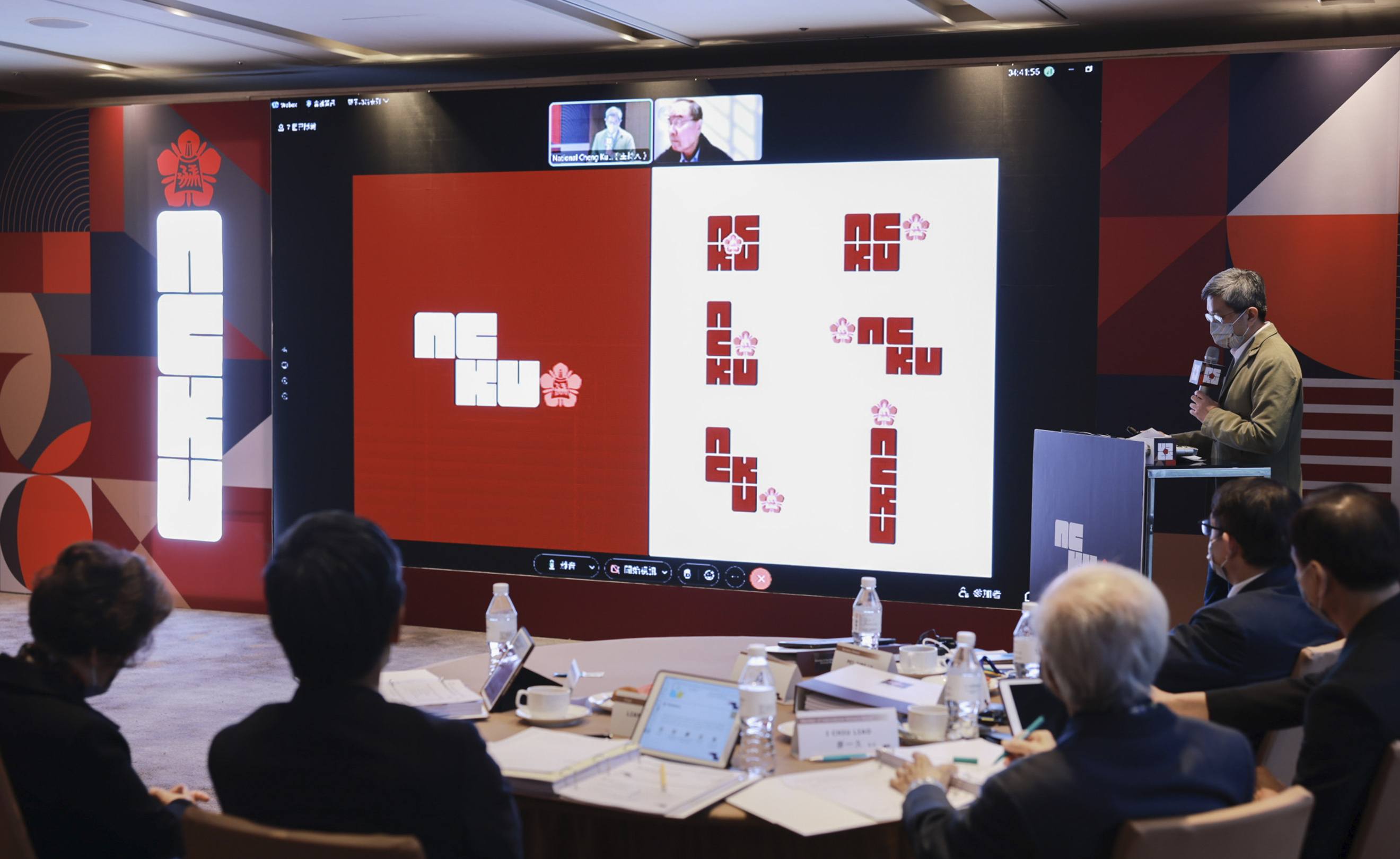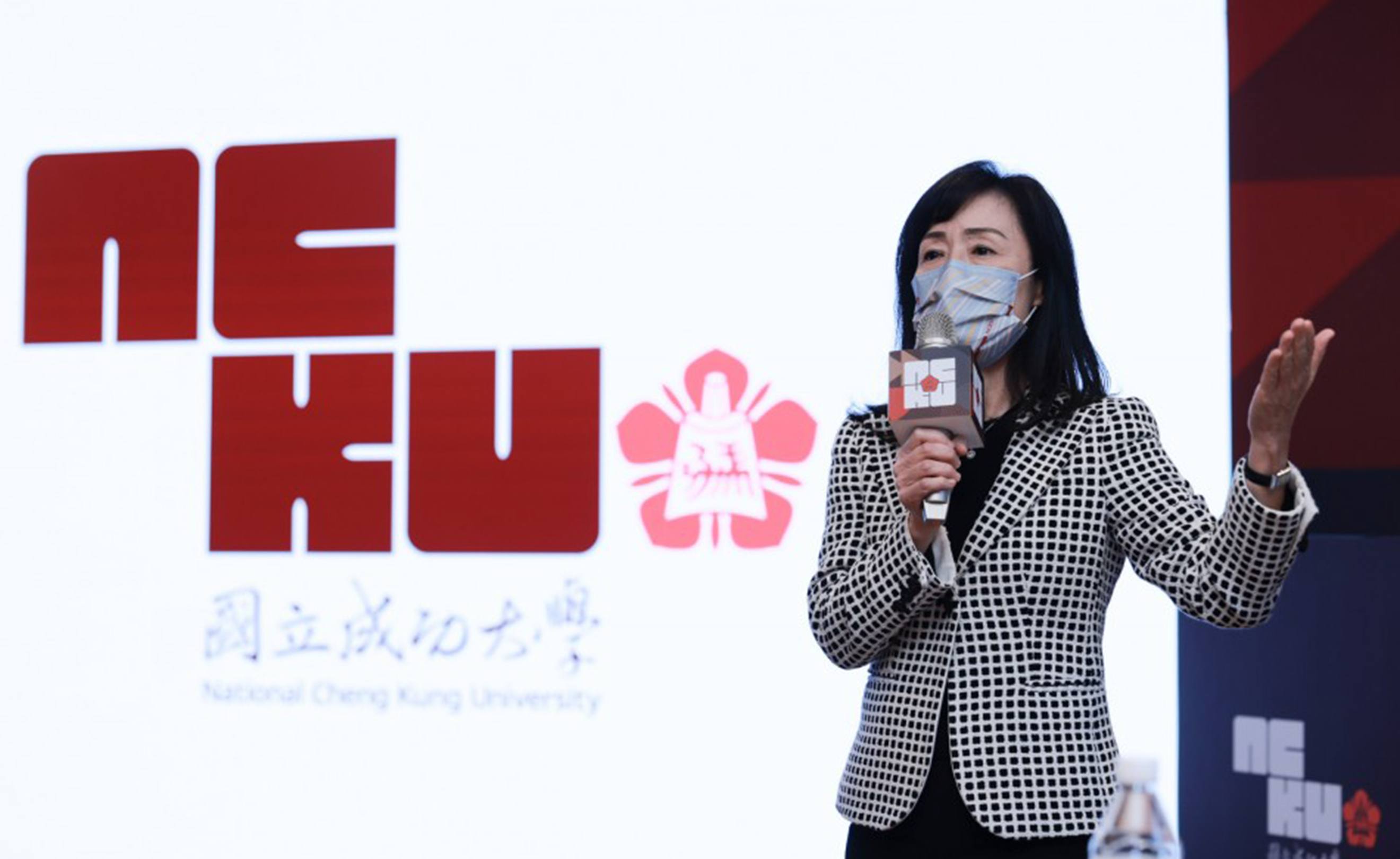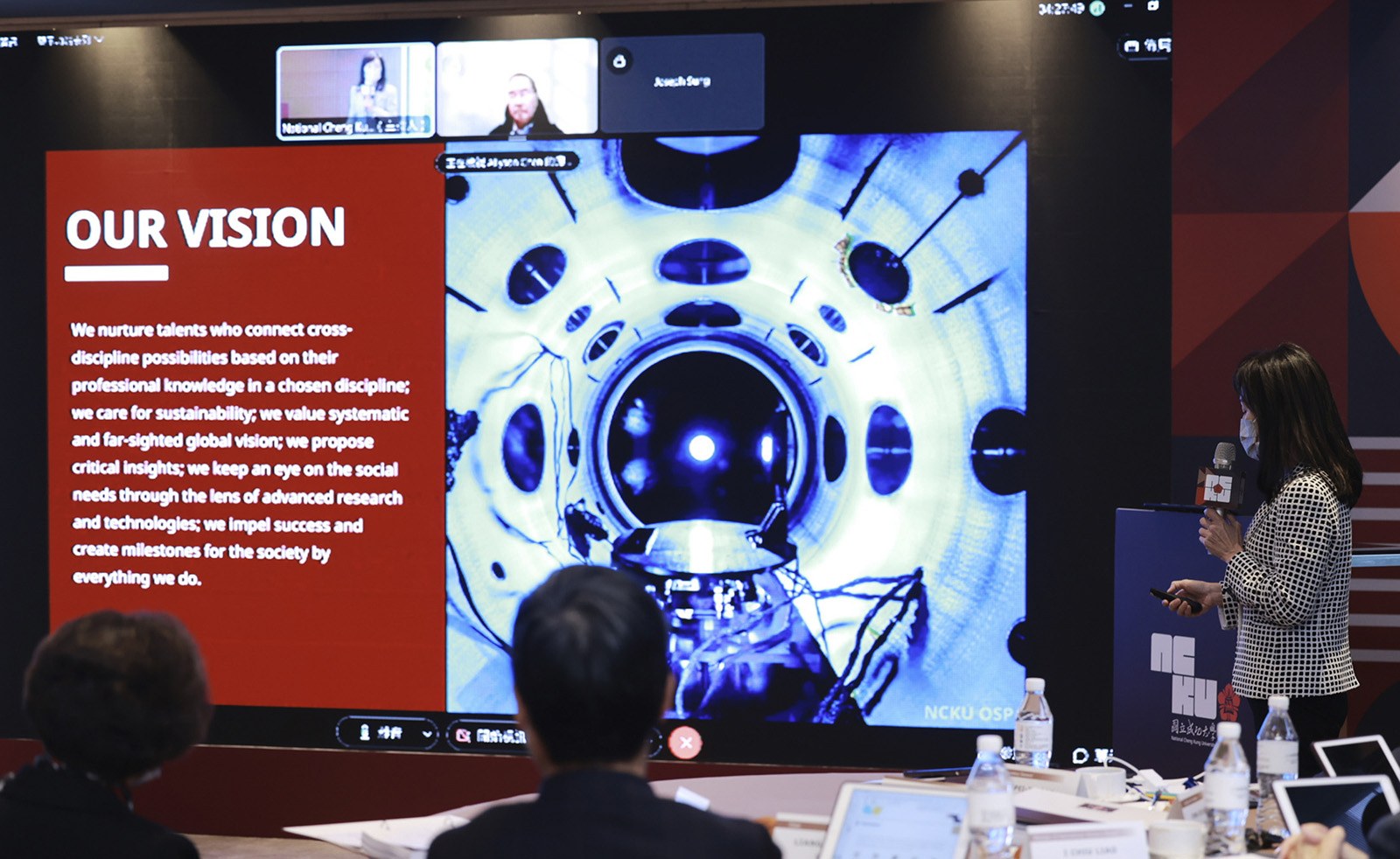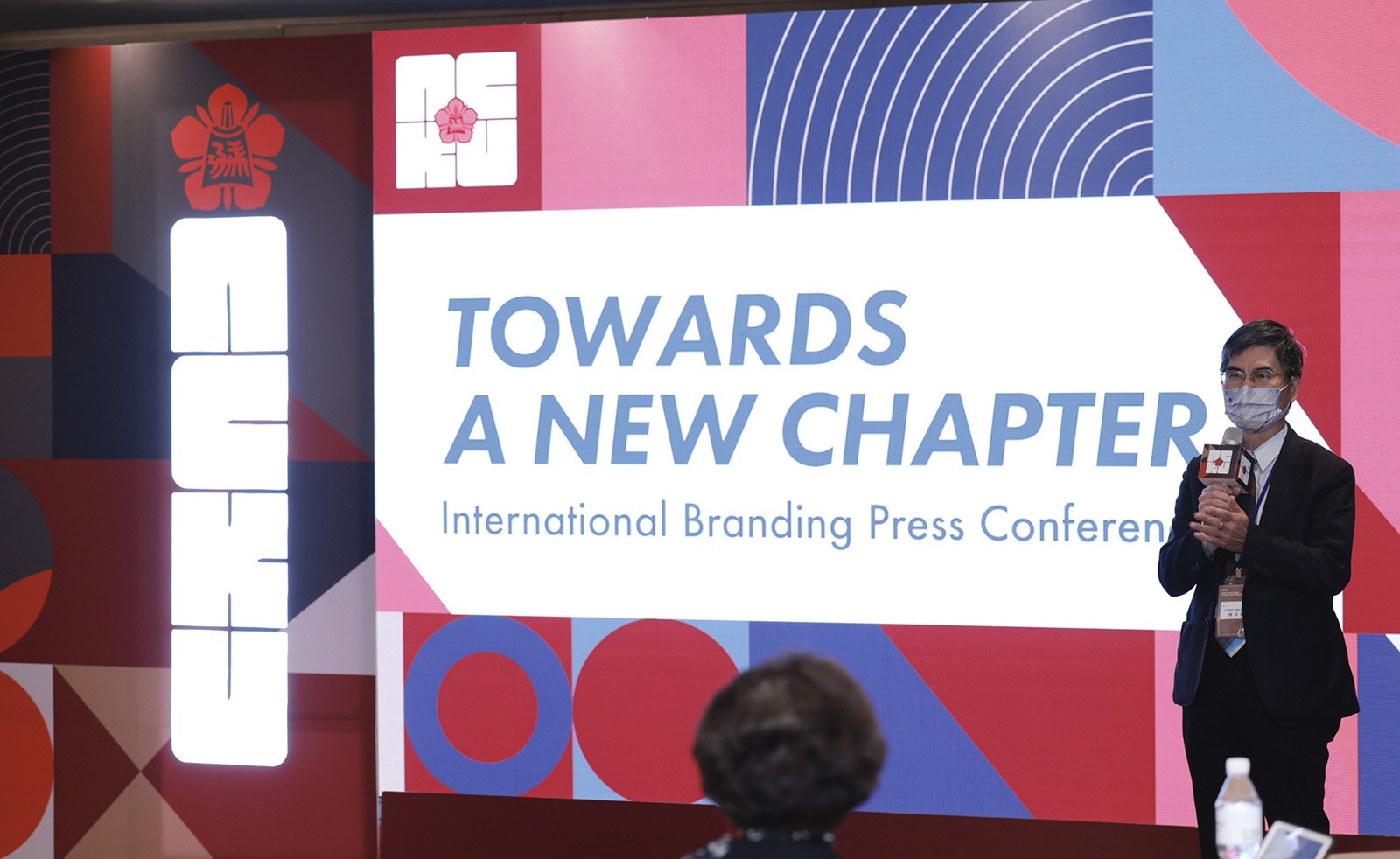Unknown abroad
Professor Wu Ping-sheng (吳秉聲), Director of the NCKU Museum, took to the stage to discuss the process and the new logo that embodies the new brand.
He said NCKU conducted a large-scale survey of international academia. The results showed a majority of roughly 65% had never heard of the university.
“This reality hurt us a bit,” Wu admits. “But it spurred us on to make our presence felt.”
NCKU is well-known within Taiwan’s borders. It was ranked first in Cheers Magazines’ “2022 University Performance Growth Top 20 Excellence Award,”which is calculated according to the feedback from 126 Taiwanese university presidents.
NCKU has won the award eight years in a row. Even so, it has struggled to project its success to the global academic community.
“‘Cheng Kung’ (“成功”) is easy to remember in Chinese, since it means success,” he said. “But in English it means nothing, and so we had difficulty communicating our value to the English-speaking world.”
“But true to our name, we mean to succeed,” he said.
More than a logo
Wu displayed a slide that contrasted the various department logos of the university. He pointed out the lack of consistency that had existed between the logos.
Wu then showed how other universities like University College London (UCL) and Massachusetts Institute of Technology (MIT) had used acronyms in their new logo designs and that NCKU is now following in their footsteps.
“The new logo features the poinciana flower, the symbol of our school from the original legacy logo,” Wu said. “While contemporary in style, the core colors of the original palette are retained,” he said.
“This allows great contrast between the visual elements,” he added. The logo is black, white, and crimson. It features the letters “NCKU” with a flower graphic.
Open to feedback
Asked what challenges the university faced in rebranding, Su told Taiwan News they had to shed their self-image and see things from the international community’s perspective.
“The first thing is to get rid of our entrenched bias and directly accept feedback from the international community.” Su said the survey team gave those interviewed the space to give an opinion without being unduly influenced.
“We worked closely with international partners, and they gave constructive although sometimes slightly depressing comments,” Wu told Taiwan News.
“The whole process has been tremendously meaningful,” Su added. “We worked with people of diverse mindsets and across interdisciplinary fields and that challenged our imagination of what’s possible.”
Author: Liam Gibson, Taiwan News, Staff Writer



